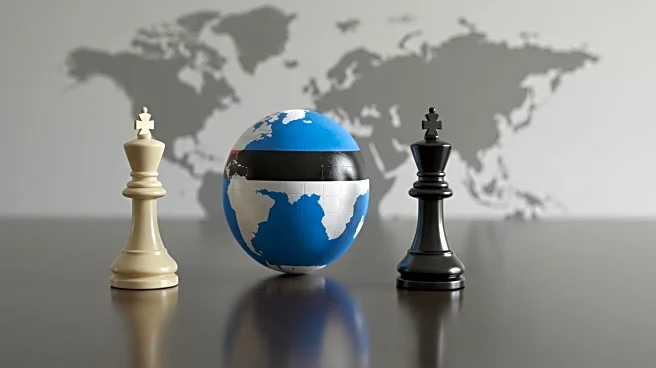What's Happening?
Estonian Foreign Minister Margus Tsahkna has commented on the planned summit between President Trump and Russian President Vladimir Putin. The meeting is set to address various geopolitical issues, with Estonia closely monitoring developments due to its proximity and historical relations with Russia. Tsahkna's remarks highlight Estonia's interest in the summit's outcomes, which could impact regional security and diplomatic relations. The discussion with NPR's A Martinez provides insight into Estonia's perspective on the potential implications of the Trump-Putin dialogue.
Why It's Important?
The Trump-Putin summit holds significant geopolitical importance, particularly for Eastern European countries like Estonia, which have historically been affected by Russian policies. The meeting could influence U.S.-Russia relations, impacting global security dynamics and regional stability. Estonia's involvement underscores the broader European interest in the summit's outcomes, as changes in U.S.-Russia relations could affect NATO strategies and European Union policies. The summit's results may alter diplomatic approaches and security measures in the region.
What's Next?
The summit's outcomes could lead to shifts in international relations, with potential changes in U.S. foreign policy towards Russia. Stakeholders, including European leaders and NATO members, will likely respond to any agreements or tensions arising from the meeting. Estonia and other Baltic states may adjust their diplomatic strategies based on the summit's results, seeking to ensure regional security and stability. The international community will closely watch the developments, anticipating potential impacts on global geopolitical landscapes.









